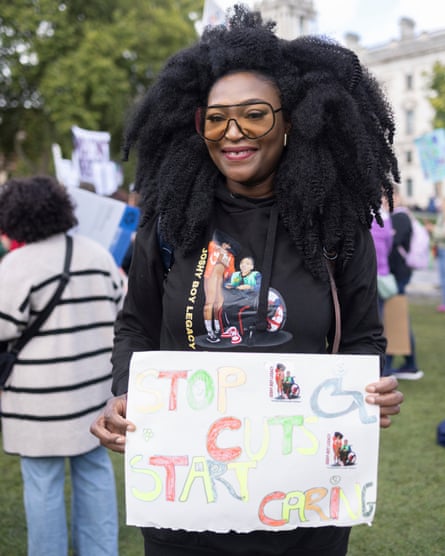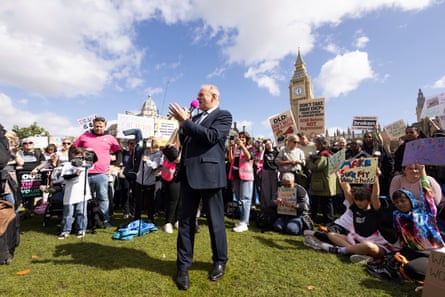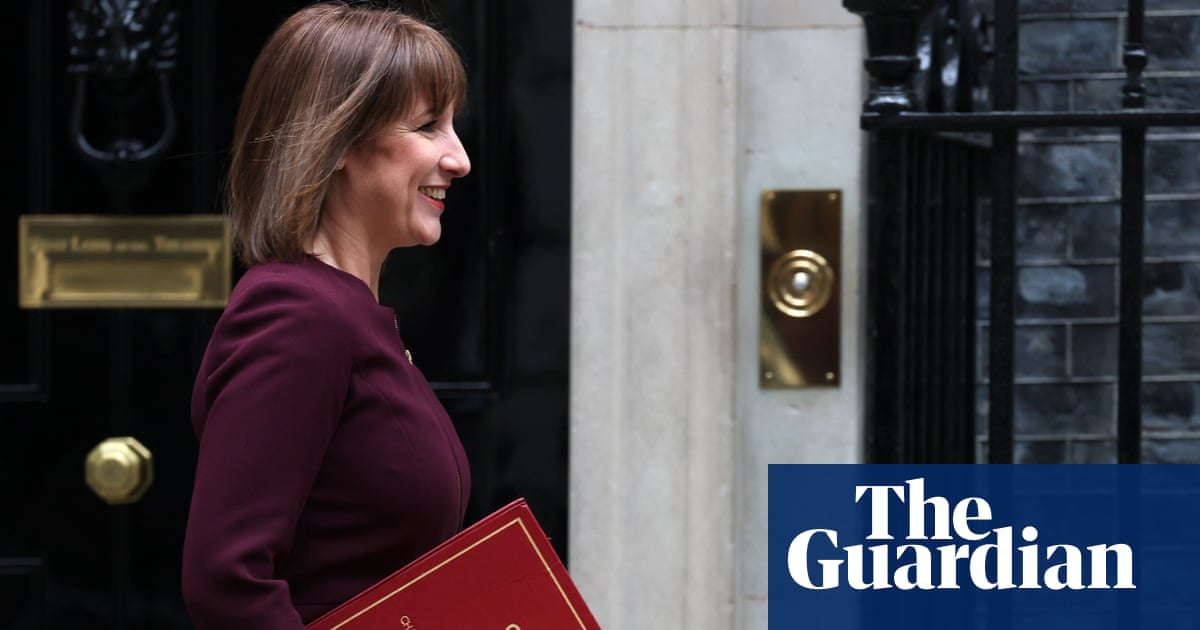Parents who are fearful about the government’s plans to overhaul special needs education in England took their fight to parliament on Monday, where the Liberal Democrat leader, Ed Davey, warned the prime minister: “Get this wrong and you are out.”
Up to 700 parents, many carrying colourful, homemade banners, took part in the Westminster day of protest. “Failed”, said one poster in blood-red paint, dripping over a list of children’s names. “Stop cuts, start caring,” said another.

The day of action was triggered by growing concern that Labour’s reforms will restrict or abolish education, health and care plans (EHCPs) – legally binding documents that more than 600,000 children and young people rely on for individual support.
About one in 20 school-age children and young people in England have an EHCP. Numbers have ballooned by 80% since 2018.
Among the protesters were Rebecca Emmanuel, 42, from south London, and her 16-year-old son, Joshua, who was born at 24 weeks and has needed intensive support throughout his life. “My worry is if these cuts happen, they will cut back on the support that my son gets at the moment, and that’s really helped him,” Emmanuel said.
Her friend Lesley Gordon, 43, whose seven-year-old son, Kai, has an EHCP and is in a special needs school for children with autism, is also worried. “Every child matters. If they make any more cuts it will really affect our children,” she said.
The government is expected to outline its plans in the schools white paper to be published later in the autumn. There are fears it could lead to a rebellion, similar to that which forced the government to gut its welfare bill after a major backlash from backbenchers.
Davey, whose own son has special educational needs, warned protesters gathered in the shadow of Big Ben that a “big fight” lay ahead. He said reform was needed but added: “I am really worried that the reform that we might get offered won’t meet the needs of our children and young people.

“So we’ve got to monitor this government like never before. We’ve seen them promise a lot and then not deliver. And what I say to Keir Starmer, [the education secretary] Bridget Phillipson and the government is, ‘this is the last chance saloon for you. Get this wrong and you are out’.”
The warning came as the prime minister’s troubles continued to mount. Responding to the protest, Phillipson said engagement with parents had shown “there are elements of EHCPs they value”, but “we need to call time on the battles to access support and bureaucracy that too many of them continue to face”.

Ashley Millhouse, 38, an enhanced teaching assistant (TA) in a Send school, travelled down from Durham to fight for her “hero”: her eight-year-old son, Alfie, who has an EHCP after being diagnosed with autism. He is struggling and in mainstream school, where he receives additional support in the mornings, but his mother says he needs more. She fears he may get less under the government’s reforms.
“I’m really worried. He does not get enough support now. The thought of him getting less … it would be so detrimental for his future,” Millhouse said. “I’m not big on politics, but I believe our children all have a right to an education. Our children matter. I want nothing but the best for my child.”

Kate Faxen, 47, a council worker from Enfield, north London, said her 15-year-old daughter had not been to school since Christmas 2024. She has an autism diagnosis, as well as attention-deficit/hyperactivity disorder and pathological demand avoidance. She has an EHCP which covers funding for specialist provision, but everywhere is full.
“Bridget Phillipson is talking about getting more children [with special needs] into mainstream. But my child could not cope,” said Faxen. “They should be taking the burden off the parents. There’s far too much on us. The hours I put in. People say, ‘don’t worry, I’m sure it’s going to be OK’. But nothing about this is OK. We need help.”
A debate was due to take place in parliament later on Monday, triggered by an e-petition calling on the government to retain the legal right to assessment and support in education for children with special educational needs and disabilities (Send). The petition attracted more than 120,000 signatories.
Phillipson said: “We inherited a system on its knees, forcing families to fight for every scrap of support. That’s why we are listening to parents and taking action – investing £1bn into Send and £750m in specialist school places, rolling out a new inclusion-centred training curriculum, and improving early intervention for ADHD, autism and speech and language needs. But in a system so broken, there is much more to do.”

.png) 1 month ago
39
1 month ago
39

















































